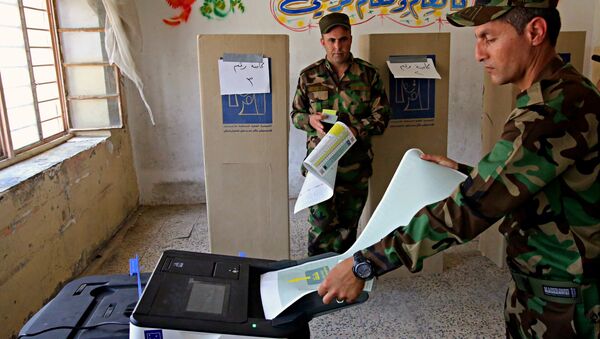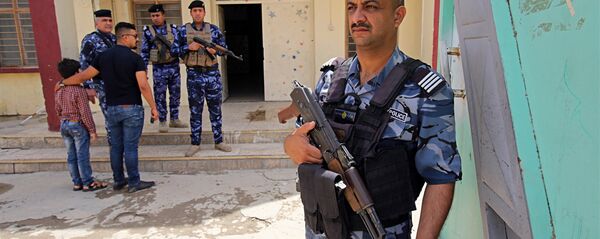Iraqis are going to the polls to elect their first parliament since the country's government declared victory over ISIS. Radio Sputnik discussed the elections with Bamo Nouri, PhD researcher, associate fellow of the Higher Education Academy, City, University of London.
Twenty-four million Iraqis are said to be eligible to vote and some 7,000 candidates are competing for 329 seats in parliament. These include a former prime minister, Nouri al-Maliki; a paramilitary leader, Hadi al-Amiri and — for the first time — many women.
Sputnik: What are your expectations from this election? How high are the chances that the current Prime Minister will be able to form a new government?
Bamo Nouri: I think, realistically speaking, past electoral cycles have produced many surprises, including the surprising victory in 2010 of Ayad Allawi's party [Iraqi National Movement], so making predictions is pretty much unwise. At the same time, in terms of Abadi — we know he's a moderate in the rhetoric and decision making, he's calm and composed, and he had a record of consistent reconciliatory rhetoric, and he speaks to keep Iraq independent and protect it — so he does have the highest chance; his narrative and electoral platform will appeal to many voters, particularly given the fact that state's victory over [Daesh] took place and, also, his anti-corruption stance.
I think his [success] in producing stability is evident in this election, which has been remarkably civil, compared to the poisonous atmosphere of 2005, 2010 and 2014. I even think if you look at what one sunni lawmaker from the Salah al-Din province said — that he decided to run on al-Abadi's list solely because this guy is a cross-sectarian — and his list is the first since 2003 to include all provinces, with Sunnia, Shia, Kurdish [and other] candidates.
Sputnik: Who are Al-Abadi's main competitors?
Bamo Nouri: Again, it is difficult to say concretely who of the competitors are the main ones, but there are quite a few. We already know about Nouri al-Maliki, who is also the member of Dawa party, as well as al-Abadi, but is part of a different coalition this time. Although al-Maliki is a competitor, many consider him [aligned] with Quds. He received a lot of criticism for his role in the Iraqi Army, however he has a lot of loyal voters at the moment based on his policies when he was in his eight-year period of Prime Minister.
The other groups, I'd say, are the alliances, one is led by Muqtada al-Sadr and the other one is led by Hadi Al-Amiri. They, I'd say, are the main competitors.
The first one is the Fatah coalition led by Hadi Al-Amiri; this faction is the umbrella for a traditional Islamic Supreme [Council] of Iraq and other Shia military groups and Popular Mobilization Units. The Fatah is known to have received a lot of material support from Iran, which does not stand well with the Iraqi public. Al-Amiri's own performance when he was the Prime Minister received a lot of criticism based on decisions he made, based on nepotism and a series of statements he made historically, and the overall state of poverty and dismay in Iraq.



